By Liana Jacob
MEET THE WOMAN who was born WITHOUT A WOMB due to a rare condition which means she CAN’T GET PREGNANT – but she is determined to be a MUM.
Wine educator and marketer, Jaclyn Misch (31) from Michigan, USA, was just 16 years old when she became suspicious that something may be wrong as she hadn’t had her period yet.
Her mother booked an appointment with her family physician who appeared concerned but attributed the delay to her being lean and athletic.
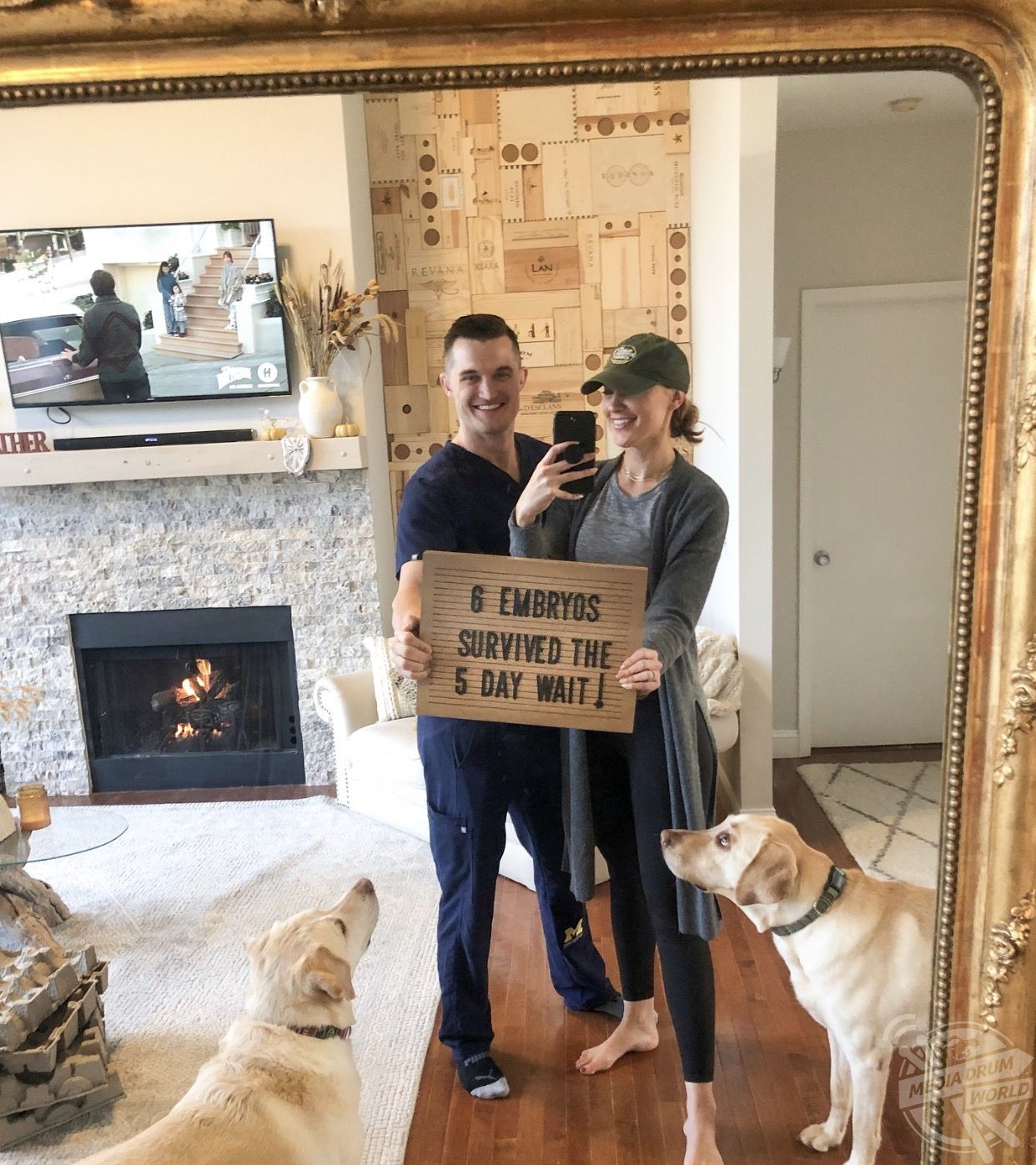
Convinced there was something else wrong, her mum wanted to double check and booked an appointment with her OBGYN who referred her to the University of Michigan.
A few months later, she was diagnosed with Mayer-Rokitansky-Kuster-Hauser (MRKH) Type 1, a rare condition that occurs in females and mainly affects the reproductive system and means that she was born with no womb (uterus) or cervix and an incomplete vagina.
Due to her condition and by the recommendation of her donor, a dilator was used to stretch her vaginal canal in order to have penetrative sex, however, she cannot carry her own child.
In 2011, she met her now husband, Jonathan (31), who has supported her throughout her journey with MRKH and helped her regain her confidence and accept herself. With his support, she competed in her first pageant and won the title Miss Michigan USA 2013 which helped her feel beautiful, regardless of MRKH.
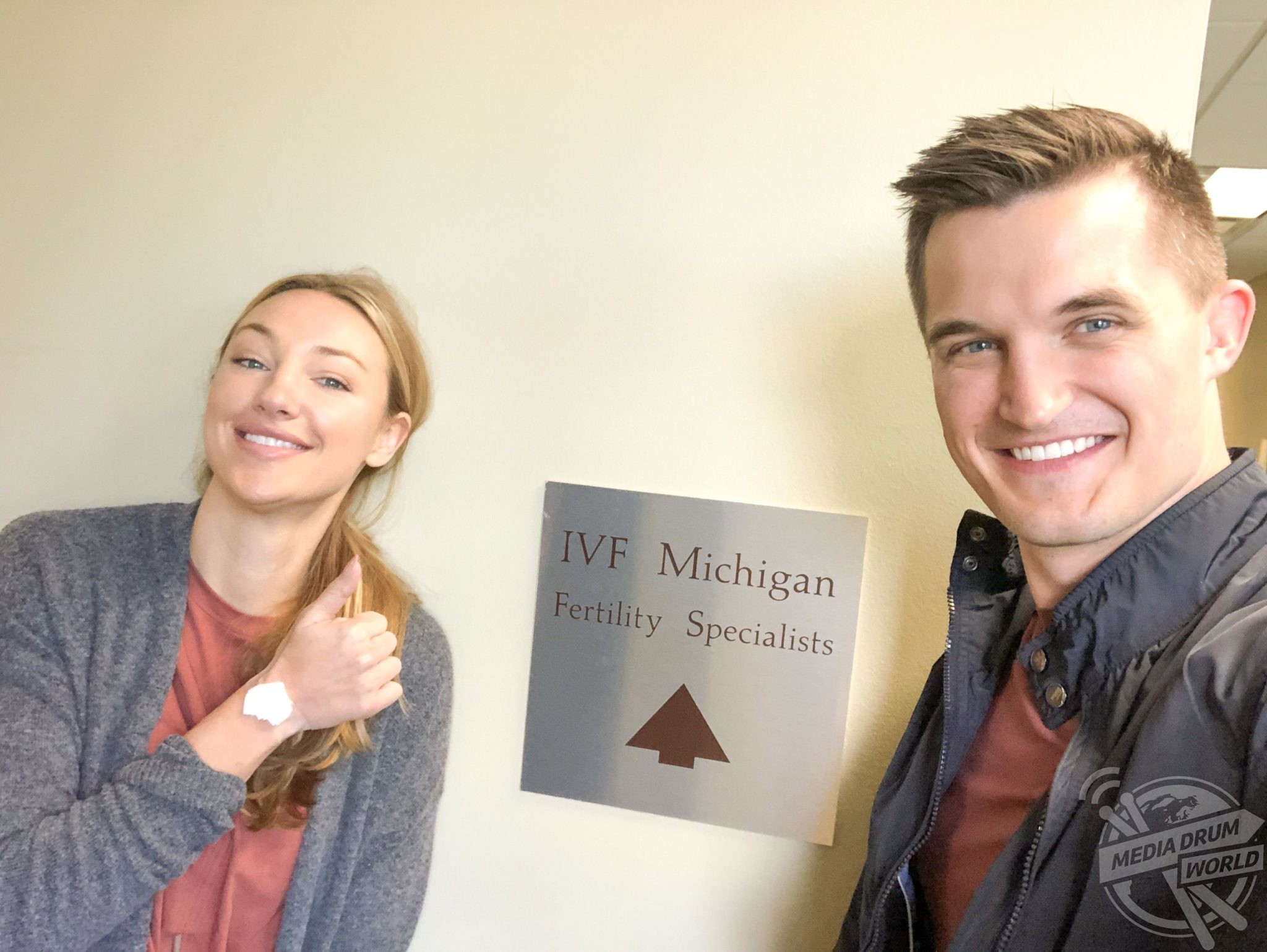
The two got married in 2015 and have since been trying for a baby through IVF and gestational surrogacy, but after three failed embryo transfers they parted ways from their former carrier. They currently have a new gestational carrier that volunteered to potentially carry their baby.
They are currently going through the stages and Jaclyn has made it her mission to be open about their journey in order to help other women going through a similar struggle.
“I was diagnosed with MRKH when I was sixteen; my family physician was concerned I had never started my cycle but since I was lean and athletic, thought this might be the delay,” Jaclyn said.
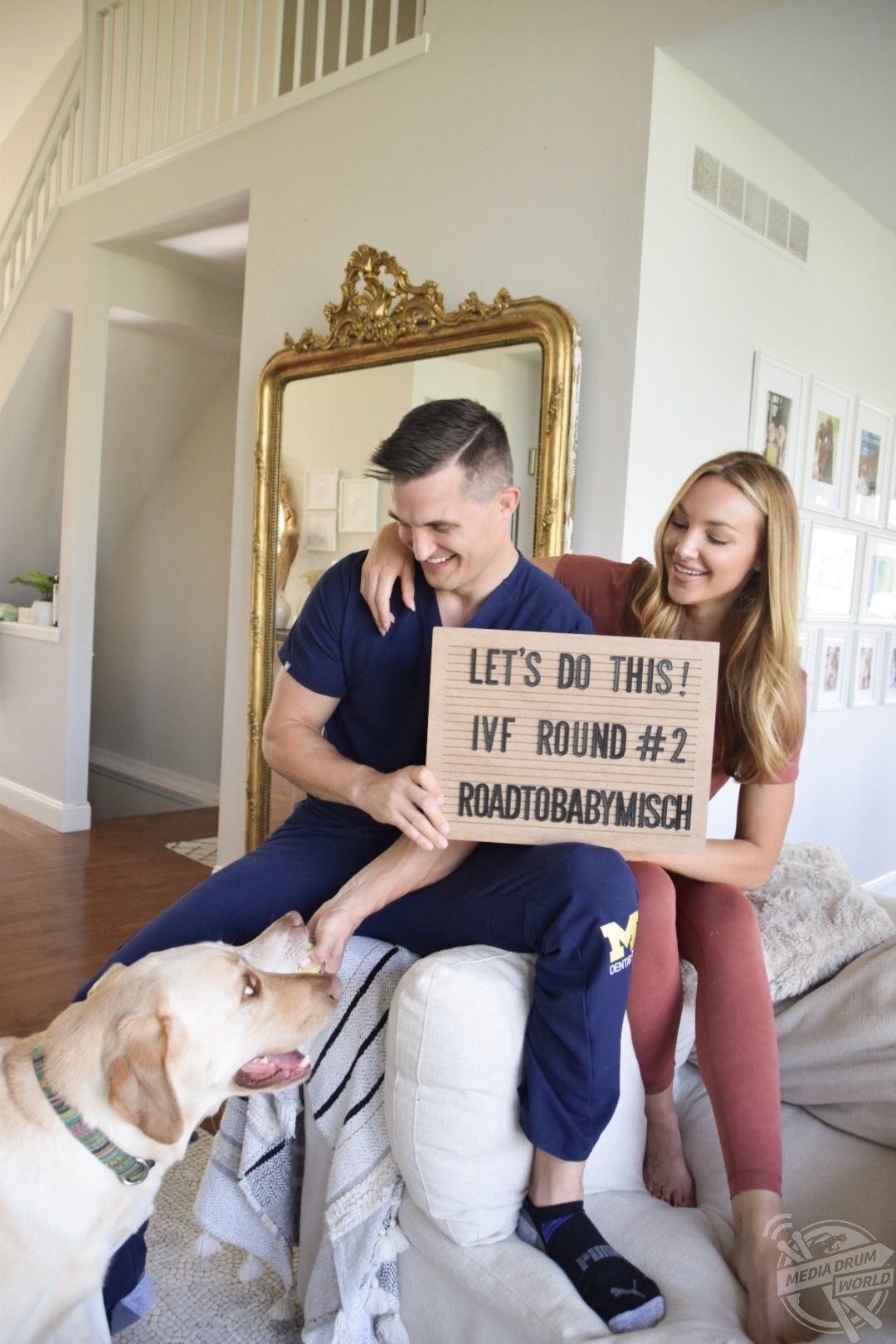
“A few months later I was diagnosed by the University of Michigan with MRKH Syndrome, Type One. This meant that I was born without a uterus, cervix and an underdeveloped vaginal canal.
“The American College of Gynaecology recommends dilation as a first line treatment in order to have sexual intercourse.
“At sixteen years old, I really wanted to pretend that none of this was happening, so that’s exactly what I did.
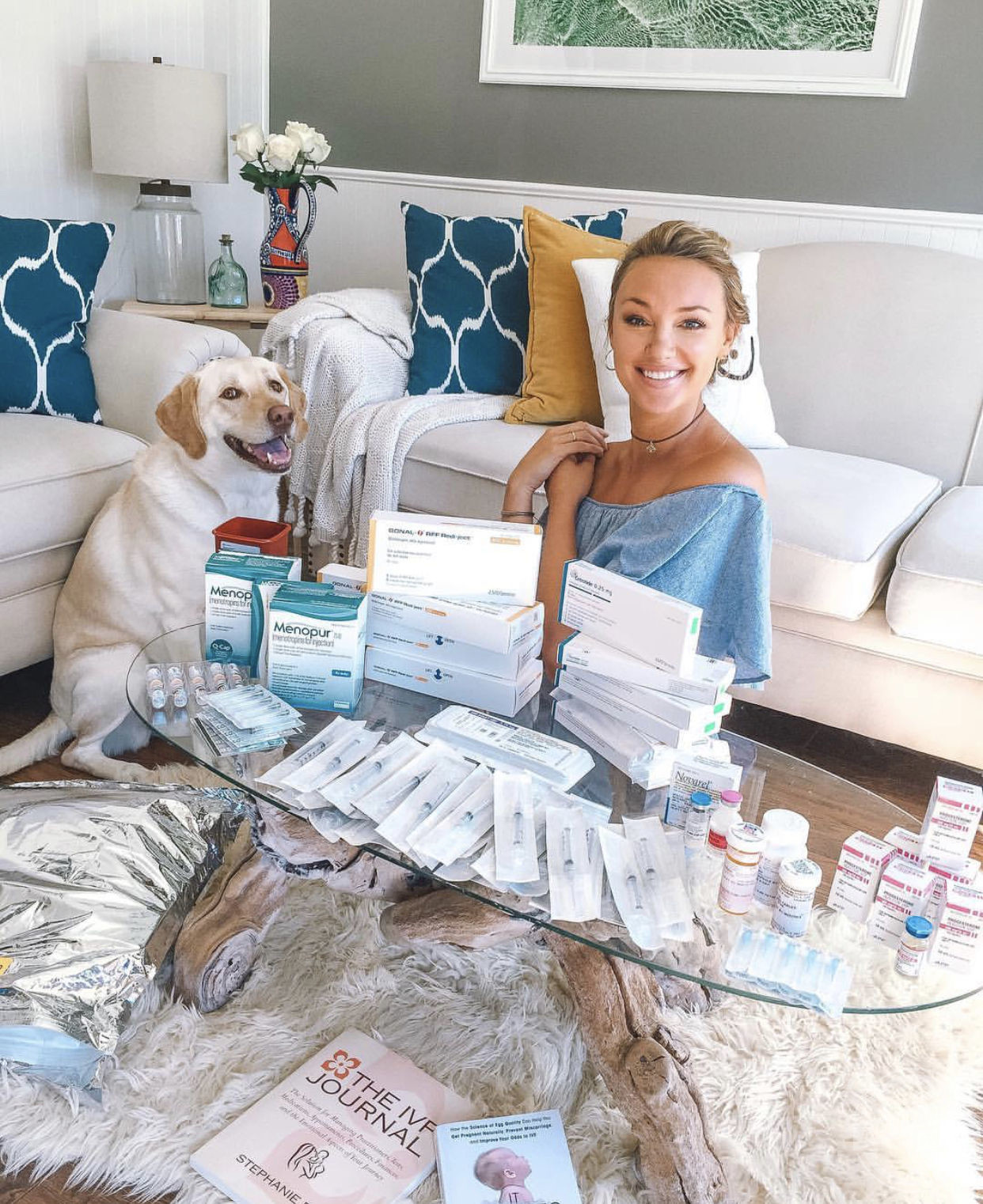
“I’d been trying so hard to fit in with my high school friends, but as fate would have it, my diagnosis had a different path planned for me.
“I was now one in five-thousand women around the world diagnosed with MRKH Syndrome. The fundamental biological traits that made me a woman, my self-identity and the plans for my future had shifted.
“I had to use dilators to have sex, I would never have a period and be like my girlfriends and I would never carry a child. I didn’t feel the same as other females and I frankly still don’t.
“I kept quiet about it for years – much of my extended family didn’t even know about my diagnosis. After college, I met my now husband Jonathan.
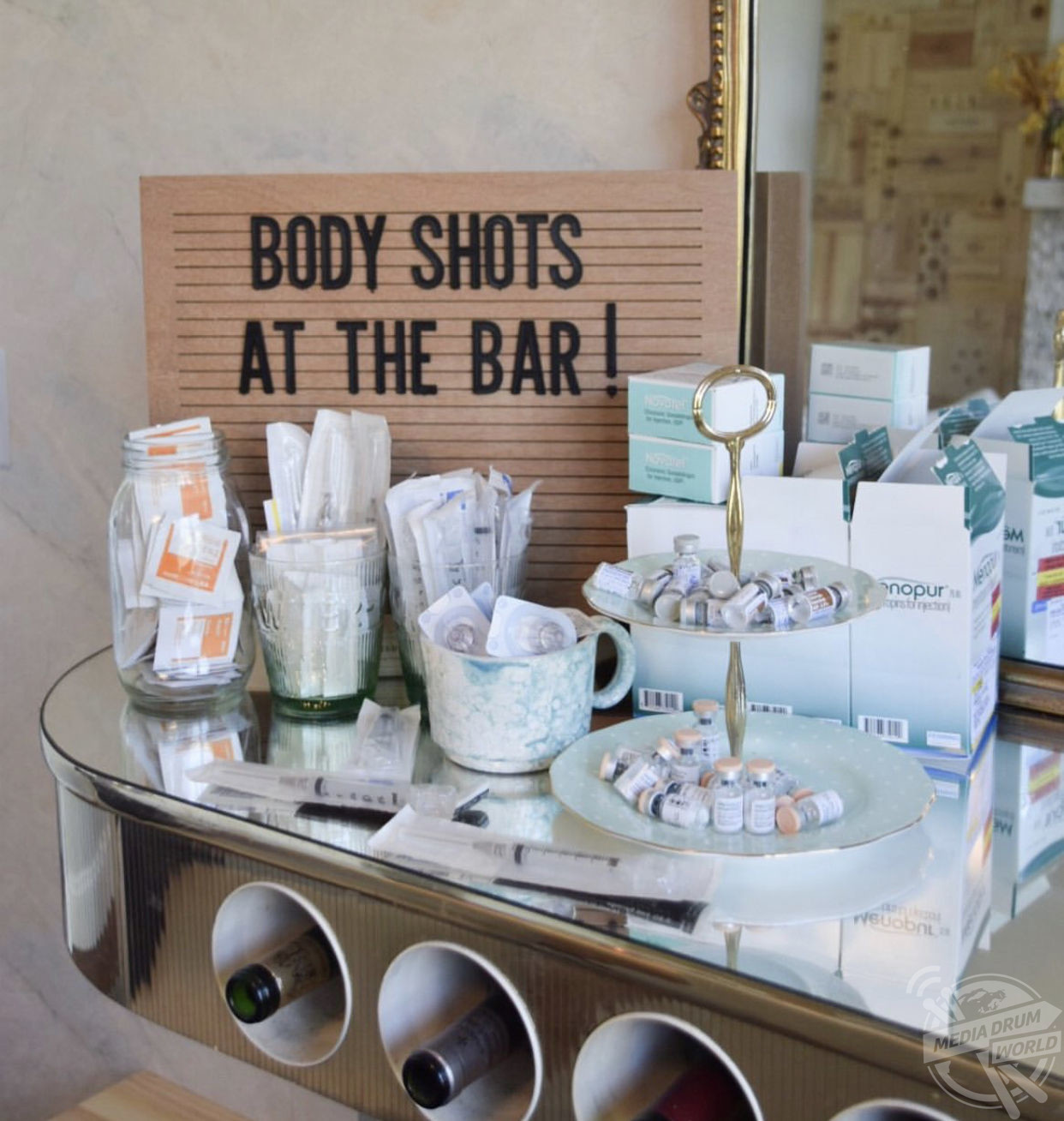
“He encouraged me to enter my first pageant (Miss Michigan USA 2013) and I won; I truly feel like I won as a way to use the platform to spread awareness about MRKH syndrome.
“At the time of my diagnosis, there was no social media and the only thing my parents and I could find online about it were a few research articles.
“I felt confused, scared and angry. I ignored most of my emotion towards it and didn’t want to think about it. It took me years to come to terms with the diagnoses and fully process.
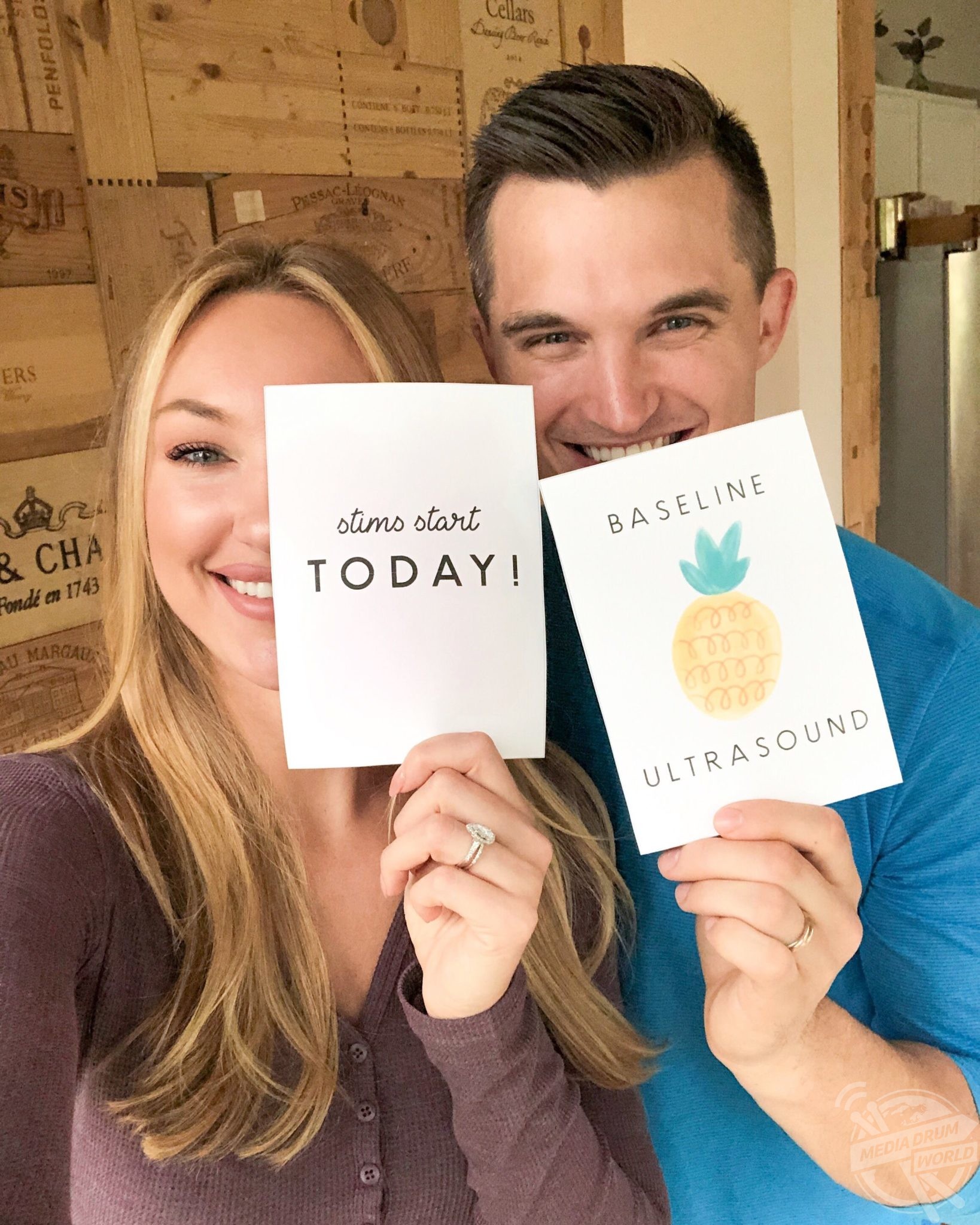
“I had to learn to become comfortable in my own skin again; for sixteen years of my life I had been conditioned by society and our culture to think I would grow up, get married and have a baby.”
Jaclyn has since been on a journey to have a baby via IVF with her husband, but after being unsuccessful, a couple have come forward to be their gestational carrier and help them live out their dream of being parents.
“I played with baby dolls and dreamt of having a baby bump. So when the diagnosis came, my self-identity shifted and I had to start envisioning a life without the blessing of pregnancy,” she said.
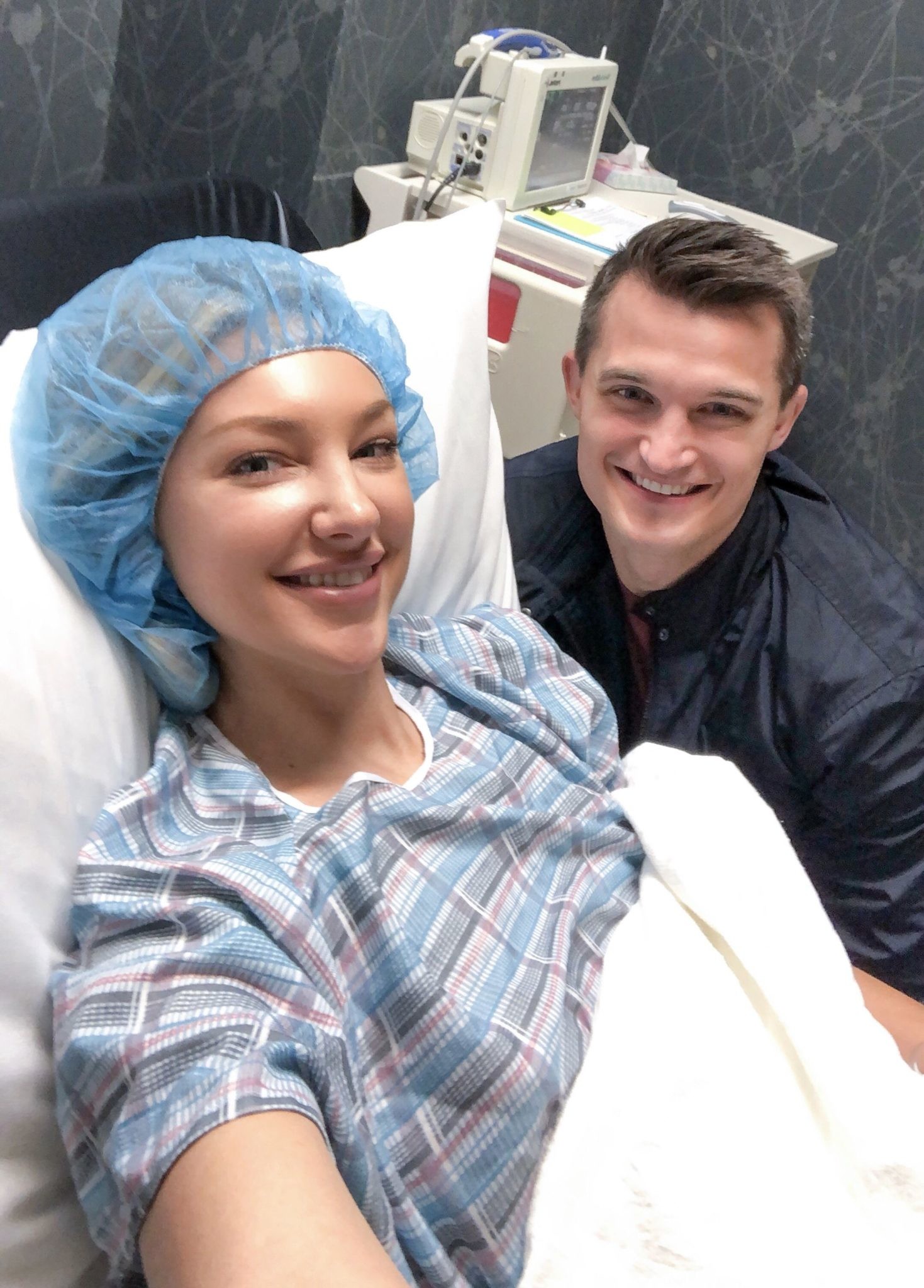
“As far as sexual intercourse goes, I think it’s important to preface this by saying everything is ‘normal’ down there – on the outside.
“But girls with MRKH have a ‘shallow’ vaginal canal, meaning in order to have sexual intercourse you need to self-dilate (stretch the skin with a dilator for twenty minutes, twice a day by applying consistent pressure).
“Or have surgery to elongate the vaginal canal; my doctor and I decided dilation was my best option, as it’s also the first line of treatment recommended by The American College of Gynaecology. I didn’t have much of an issue and things went quickly and smoothly.
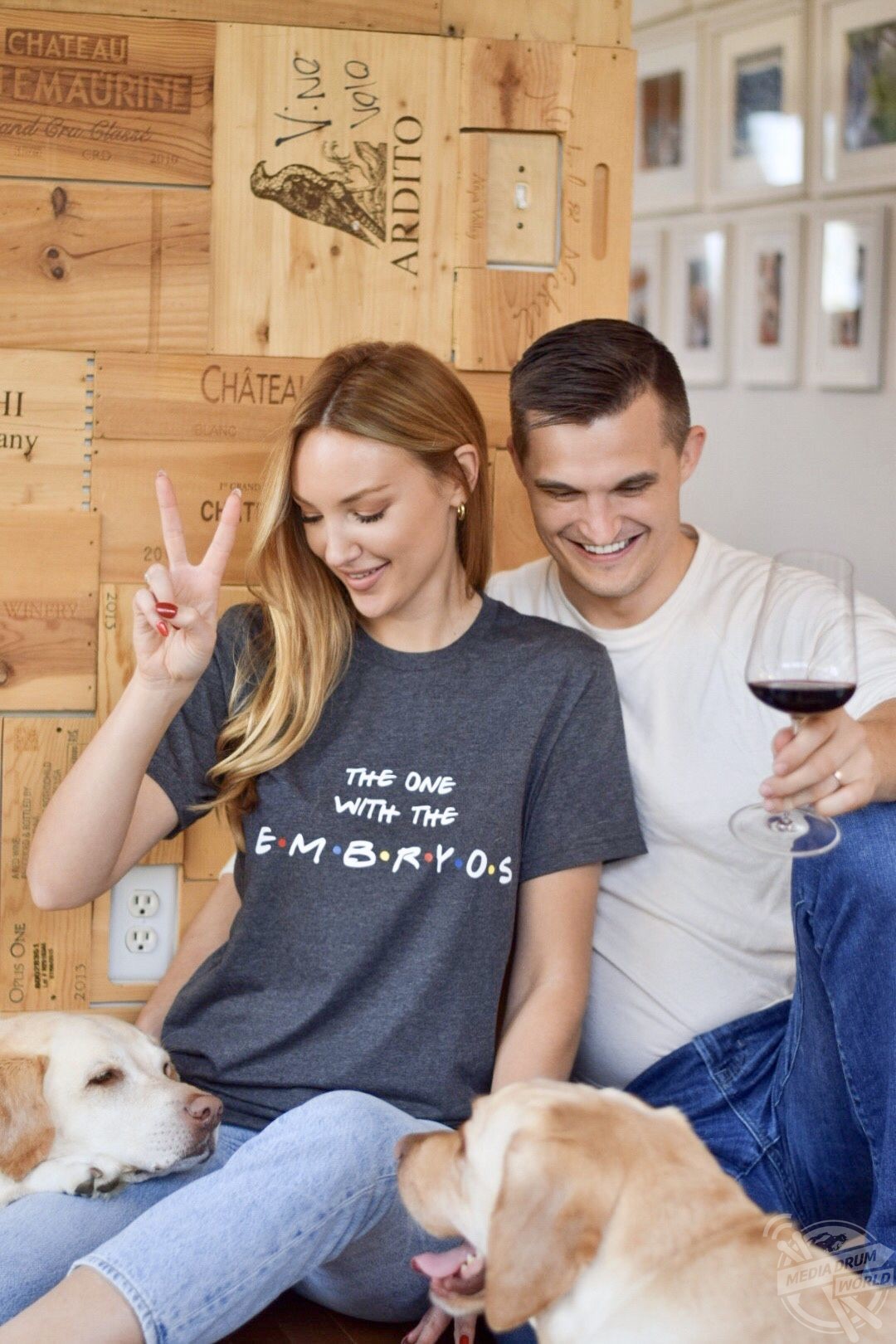
“I’ve been with my husband Jonathan since 2011 and I have to say that my diagnosis affects our relationship emotionally in our journey to parenthood.
“Seeing our friends get pregnant so fast and easily will always strike a small chord in my mind. Of course, I’m happy for them but always wishing to have that ability myself.
“After our three failed embryo transfers and parting ways with our previous gestational carrier – I was a mess.
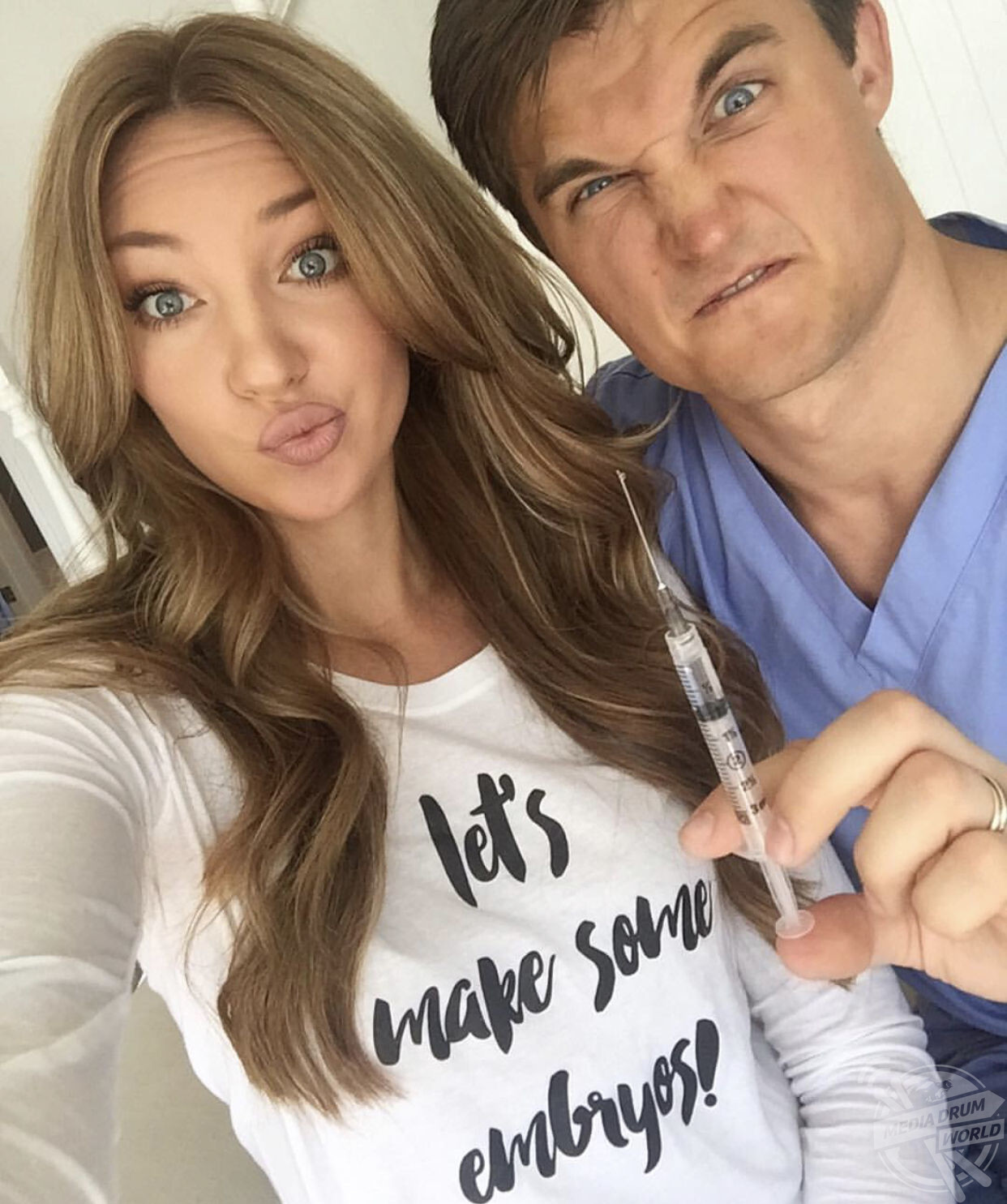
“Asking myself what my life purpose is, will we ever have a child of our own? I was completely deflated, and it hit me much harder than Jonathan.
“Instead of the path to parenthood being joyful and happy – ours is stressful, emotional, and draining both mentally and financially.
“Our journey to parenthood is by far the most challenging. For the longest time, I’ve seen PGS ‘chromosomally normal’ embryos taking on the first time.
“I’ve had friends with MRKH (their carriers) get pregnant on their first transfer with their high-quality embryos – so naturally, I thought we would too as our embryos were perfectly normal.
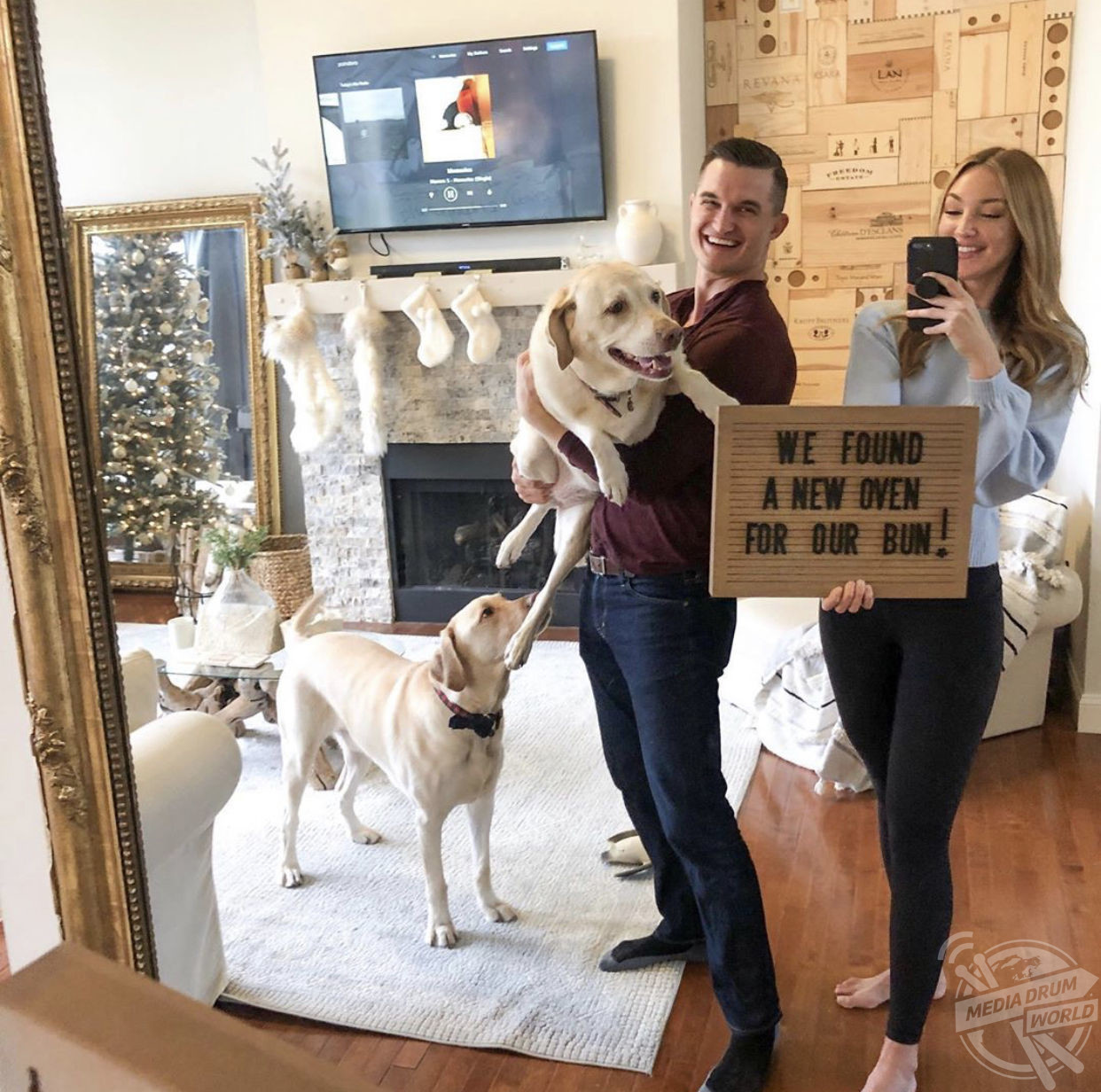
“But that wasn’t the case – three times in a row. The waiting period is also extremely difficult. Between transfers, waiting for the two-week pregnancy blood test – building up excitement only to be completely deflated with the negative results.
“Currently, we have a new gestational carrier and are beyond grateful that she and her husband have volunteered to help us start a family. We are in the process of having her screened by our IVF doctor.
“If my story resonates with someone else, I think that’s great; I’ve found a lot of connection and support with other women via Instagram and it’s been so helpful, mentally – knowing I’m not alone in this journey to parenthood.
“You are never alone; so many women have been diagnosed with MRKH from around the world – there is an entire network of MRKH sisters waiting for you with encouragement, understanding and support – through every phase of MRKH.”






